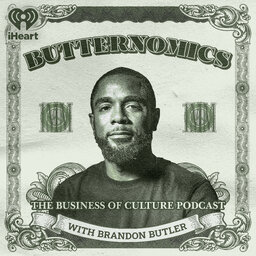The Business of Breakfast with Gocha Hawkins
In this episode of Butternomics, host Brandon Butler sits down with Gocha Hawkins, the dynamic entrepreneur behind Gocha's Breakfast Bar and several other successful ventures. Gocha shares her inspiring journey from cosmetology to the culinary world, highlighting the importance of consistency, quality, and community support in building a thriving restaurant business. She discusses the challenges and triumphs of expanding her brand, the critical role of a strong team, and the innovative strategies she employs to keep her customers coming back. Gocha also delves into her retail products, including her popular pancake mix and hot sauce, and her plans for a shared kitchen space to support other food entrepreneurs.
 Butternomics - The Business of Culture
Butternomics - The Business of Culture


